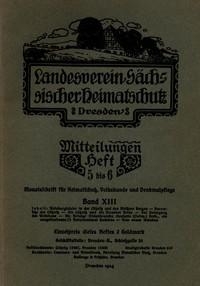|
|
Read this ebook for free! No credit card needed, absolutely nothing to pay.Words: 71263 in 24 pages
This is an ebook sharing website. You can read the uploaded ebooks for free here. No credit cards needed, nothing to pay. If you want to own a digital copy of the ebook, or want to read offline with your favorite ebook-reader, then you can choose to buy and download the ebook.

: The reformation in Poland by Fox Paul - Reformation Poland; Poland Social conditions; Poland Economic conditions@FreeBooksMon 08 Apr, 2024 Preface vii Appendix 138 Bibliography 149 PREFACE In the foreword to his book on "The Reformation in Germany," Prof. Henry C. Vedder makes this statement: "The great religious struggle of the sixteenth century was only a phase of the social revolution then going on in Europe and effecting a transformation of all its institutions. Momentous economic changes were the underlying cause of political and religious movements.... The external events of the Reformation have been told before with substantial accuracy; what is now needed is illumination of the facts by the light of this new knowledge." The present study on the Reformation in Poland attempts to gather together material of social and economic nature and to point out that the underlying causes of the rise and spread of the Reformation in Poland were chiefly social and economic rather than religious, or even purely political. Viewed in this light, the rapid rise and the phenomenal growth of the Polish Reformation, as well as its almost complete collapse in the course of the following century, become quite intelligible. Had the movement had its roots in deep religious convictions, it would have survived the changes in social institutions, but, having been inspired and stimulated in its early development by economic motives, it lost its dynamic force with changed economic conditions by the end of the sixteenth century. Owing to the fact that the writer has had access to only a part of the great abundance of source material bearing on this subject, the study does not pretend to be exhaustive. However, it has the merit of being the first attempt to portray the development of the Polish Reformation in the light of economic causes, and in the judgment of the writer the conclusions here reached and the interpretation given the movement are essentially sound. In this place the writer wishes to express his indebtedness to Dr. John M. Vincent, Professor of European History at Johns Hopkins University, for his encouragement in the prosecution of this study and for his valuable suggestions and criticisms, and to Miss Mary C. Stokes, of the Historical Department in the University, for her careful reading of the manuscript before its going to press. THE REFORMATION IN POLAND SOME SOCIAL AND ECONOMIC ASPECTS DEVELOPMENT OF THE REFORMATION IN POLAND Besides these instances, there were others. Leszek the Black was at odds with the bishop of Cracow, Paul of Przemankow. The bishop, an implacable enemy of the king, conspired against the king, incited the aristocracy against him, and caused even an invasion of Little Poland by the Lithuanians and the Jad?wings. The king dispersed the invaders, confiscated the bishop's property, and imprisoned him in the Castle of Sieradz, putting him in stocks. It was only when the Pope threatened Leszek with excommunication that the king liberated the imprisoned bishop. In the fourteenth century Casimir the Great imposed a tax on episcopal property. The Polish high clergy resented that, and excommunicated the king. Casimir ordered the priest, who brought the bull of excommunication to him, to be seized and drowned in the Vistula River. And since Casimir was a powerful and popular ruler, the clergy took due warning, and desisted from further provocative steps. Moreover, it is worthy of note that while in Germany the right of investiture was surrendered as early at 1122 by the Concordat of Worms, in Poland the princes defended and retained the right as late as 1206. And in the second half of the fifteenth century, taking advantage of the existing schism in the church at that time, they again regained it, and made it a permanent and indisputable prerogative of the Polish crown. Even such a loyal son of the church as Sigismund the Old did not allow the Pope to interfere with his right in this particular. When at the beginning of Sigismund's reign the Pope deliberately nominated a candidate for the bishopric of P?ock, the king refused to accept the papal nominee, stating that he would never consent to such violation of the country's laws by allowing anyone else to nominate the kingdom's senators. Again, when later in Sigismund's reign Pope Hadrian VI was delaying his approval of the king's nomination of Leszczy?ski to the bishopric of Posen, Sigismund notified the Vatican that the Pope's refusal to comply with his just wishes might result in unpleasant consequences to the Holy See; whereupon the Vatican at once approved Leszczy?ski's nomination to the bishopric of Posen. Free books android app tbrJar TBR JAR Read Free books online gutenberg More posts by @FreeBooks
: Two men on a mill by Castonguay A Harold - Flour mills Conservation and restoration Massachusetts Cape Cod; Flour mills Massachusetts Cape Cod History@FreeBooksMon 08 Apr, 2024
|
Terms of Use Stock Market News! © gutenberg.org.in2025 All Rights reserved.






